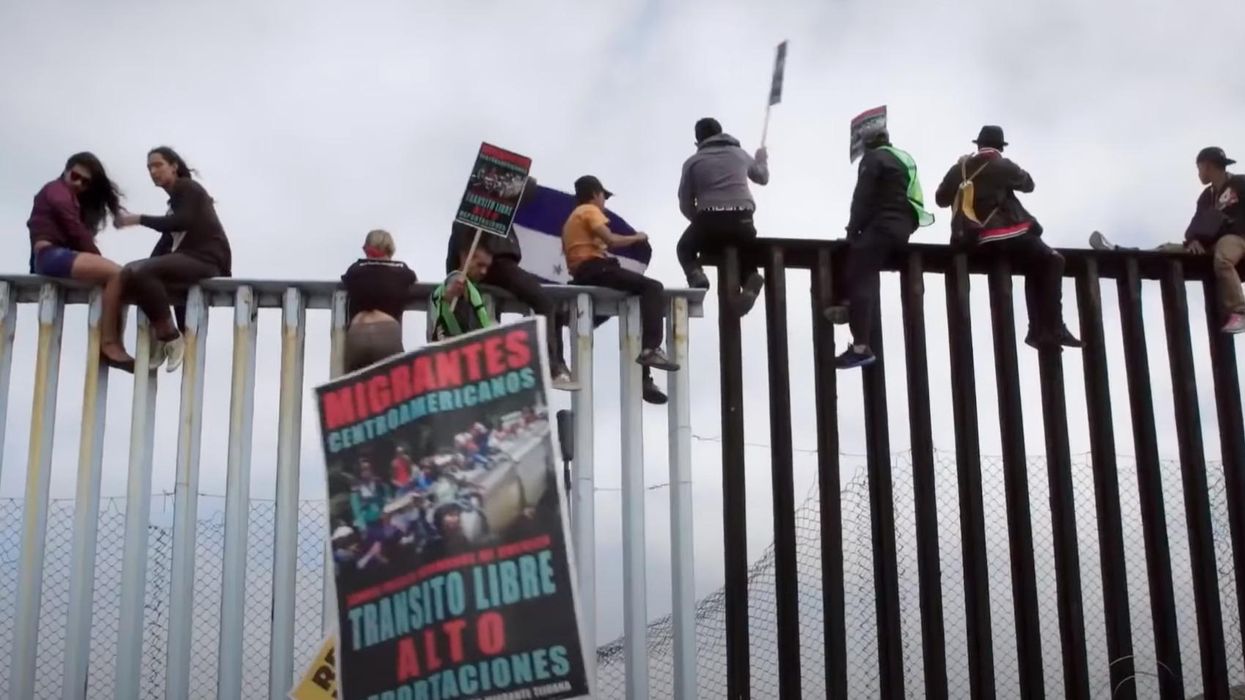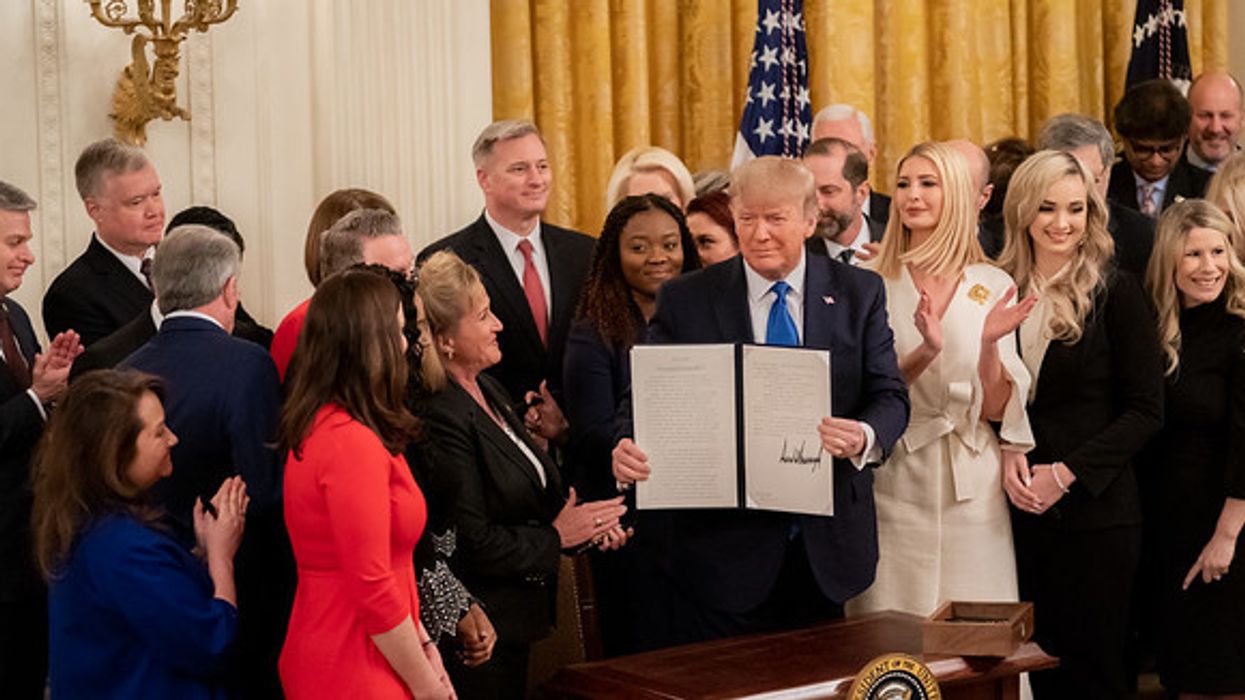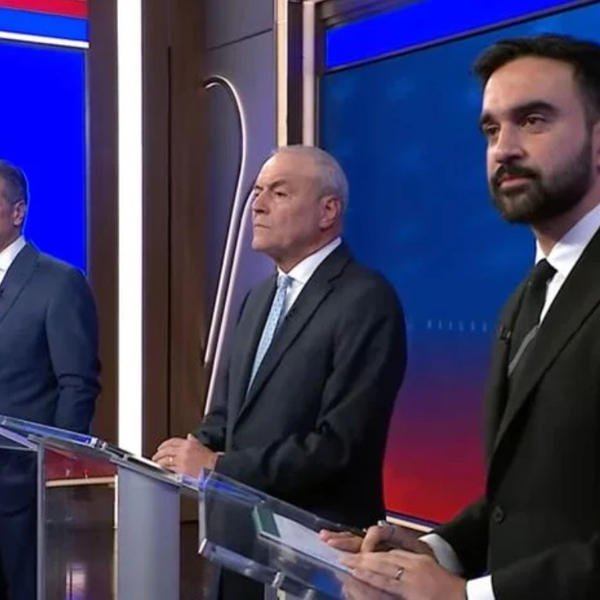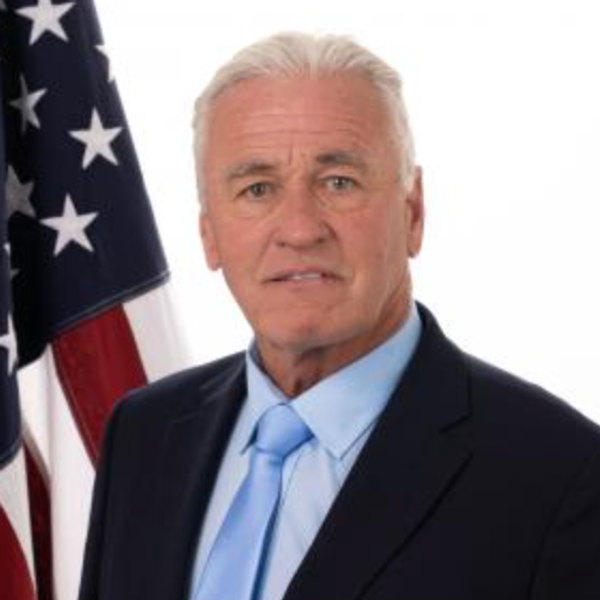But in recent months, the administration has been found to be flouting the United States' own anti-trafficking laws by deporting thousands of children and families seeking asylum, practically delivering them into the hands of traffickers across the border in Mexico.
Dr. Amy Cohen, executive director of Every Last One, explained to me in an interview that under the Trump administration's so-called "Remain in Mexico" program, "the United States has been essentially feeding vulnerable migrant children and families to cartel traffickers in Mexico continuously."
The program, officially known by the Orwellian-sounding title of "Migrant Protection Protocols" (MPP), sends immigrants seeking entry into the United States across the border to Mexico to await the adjudication of their cases. While the Department of Homeland Security claimed that MPP would "decrease the… ability of smugglers and traffickers to prey on vulnerable populations," in fact it does the opposite.
Cohen elaborated on this horrific phenomenon, saying, "migrants are dropped off with nothing on the other side of the border, with no shelter, with no protection, with no food, with no money. And within minutes, they are picked up by cartel gangs that are waiting." As a child and family psychiatrist who works closely with traumatized migrant children, she did not mince words, saying that families are, "kidnapped and used for extortion, which is a form of trafficking. Sometimes they are tortured. Sometimes they are raped. Children are compelled to watch. Sometimes children themselves are raped."
The only way to view the outcome of this policy is that the United States is actively participating in a trafficking operation. The Trump administration cannot claim ignorance of the outcome of MPP. According to Cohen, "This is happening in cities literally all along the border. This is not a secret; this is widespread." So extensive is the abuse that according to her, "The vast majority of asylum seekers who we've placed into the MPP program have at one time or another experienced at least one, sometimes multiple, episodes of what I would consider trafficking, of kidnapping, and some form of psychological or physical torture."
Because of the extreme danger that the Trump administration has put families in, according to Cohen it has "forced many parents into a decision" about whether to keep their children with them or send them unaccompanied across the U.S. border.
But under cover of the coronavirus pandemic, the federal government has accelerated the expulsion of even unaccompanied children to Mexico and Central America—in violation of federal law. The Associated Press explained that "More than 2,000 unaccompanied children have been expelled since March under an emergency declaration enacted by the Trump administration, which has cited the coronavirus in refusing to provide them protections under federal anti-trafficking and asylum laws."
Now reports have emerged of the government hiring a private security and transportation firm to move immigrant families and children into hotels in the United States before expelling them. According to the New York Times, which broke the story, the Trump administration has created "a largely unregulated shadow system of detention and swift expulsions without the safeguards that are intended to protect the most vulnerable migrants." Children, some as young as one year old, are being cared for in hotels like Best Western and Hampton Inn by private security personnel who have no childcare training.
Cohen says advocates like her believe that "this has been a way for the United States to try to hide a number of these children who they are deporting." Those children held in government facilities have to be registered as having entered the United States, which then triggers legal protections for them.
But by holding children in hotels, effectively off the books and out of public view, "government attorneys are denying that they are actually in the custody" of the Immigration and Customs Enforcement agency, says Cohen. Bizarrely, they are claiming that the children are in the custody of the Centers for Disease Control and Prevention (CDC) over concerns of COVID-19, and thereby flouting the legal mandate known as the Flores Settlement to maintain the safety, care, and oversight of the children.
Where the children end up once they are removed from the U.S. is not known, and the Customs and Border Protection (CBP) agency will not say. According to Reuters, "Between April and June, U.S. officials arrested more than 3,300 unaccompanied children on the southwest border, but CBP has declined to say how many have been expelled under the new process or give a breakdown of arrests by nationality for that time period." During that same time frame, out of the thousands of children apprehended, only about 160 remain in U.S. custody.
It is ironic, to say the least, that some of Trump's most loyal followers are conspiracy theorists who label themselves QAnon claiming that the president is facing off against a "cabal of Democratic pedophiles." So mainstream is this movement that one of its followers just won a GOP congressional primary in Georgia. QAnon is now appropriating the social media hashtag #SaveTheChildren and promoting fantastical claims of a widespread child sex trafficking ring. Its followers have even joined the anti-trafficking movement in the United States. But they have entirely ignored the very real trafficking and exploitation of children at the U.S. border that their president has unleashed.
More than two years ago, then-Attorney General Jeff Sessions claimed that the government cared about children when he officially announced Trump's "zero tolerance" policy, saying, "If you are smuggling a child, then we will prosecute you and that child will be separated from you as required by law." It was a thinly veiled attempt to punish those fleeing poverty and violence for a better life in America. And while mass public outrage forced Trump to back off (he signed an executive order in June 2018 to end what his own discretionary policy initiated), in truth the torture and trauma facing immigrant families did not end. It was simply moved out of our view across the border into even more dangerous conditions.
As America hurtles toward November 3 with a desperation unlike any we've felt for previous presidential elections, the issue of how President Trump has treated immigrant families and children has been largely off the radar. But if we care about children and about protecting them from horrific torture and abuse, Trump's role as Child-Trafficker-in-Chief ought to be central to our election discourse.
Sonali Kolhatkar is the founder, host and executive producer of "Rising Up With Sonali," a television and radio show that airs on Free Speech TV and Pacifica stations.












